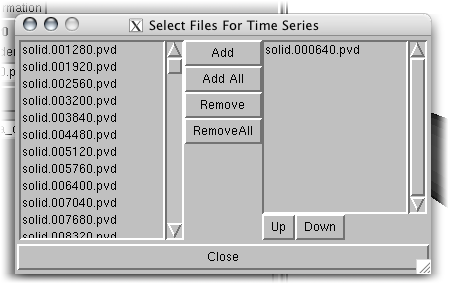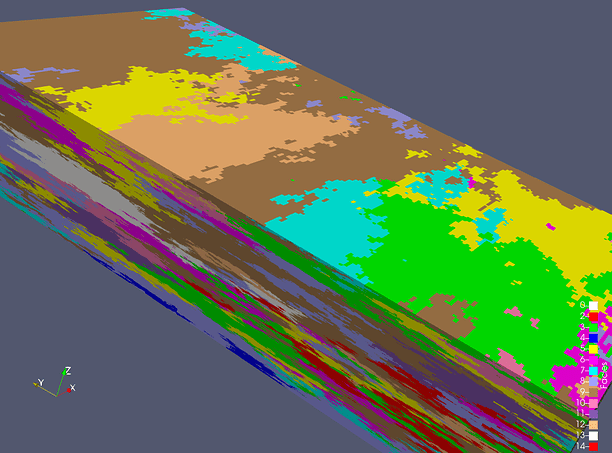
And the Gaussian blur module in Slicer doesn’t allow one to select a “model” as input. Use the Resample With Dataset filter to get the cell data from the original unstructured mesh. Filters are attached to readers, sources or other filters to modify its data in some way. vtk file, I can’t seem to import it as a “volume”. Paraview used filters which are functional units that process the data to generate, extract or derive features from the data. Figure 6: Data subdivision among pvservers. Some of these datasets are parallel and/or time-dependent examples. VTK legacy and XML examples have also been added, including both structured and unstructured datasets. A netCDF example with sea surface temperature has been added. vti file, and it will get a rendering from the vtk-js application. We found some examples like: From there you can drag any.
#Paraview resample with dataset code#
The filters set the key CANPRODUCESUBEXTENT (), and careful indexing (not shown in the source code above for clarity) is used to treat partial results. ParaView 5.10.0 installers now include many more example datasets. We have some data from CT scan that are saved in. I always ended up with lots of faces that couldn’t be matched & very blotchy-looking plots. However, the problem here, is that since my present data is generated at the source as a. Once running ParaView in parallel, we carefully implement our programmable filters to manage the data subdivisions. You can get pretty close using ParaView, combining the Resample with Dataset & Append Attributes filters, but I never got great results. DICOM files, I just import as a “volume” and can use the Gaussian blur module to blur the image. You’re absolutely right, I can ideally do everything I need to do in Slicer. Specifically, I want to apply a Gaussian blur to the volume, to simulate the same data imaged at different resolutions. demo.mkv (1.Sure the program I’m using creates voxel data output as cells in a. They take in data on their inputs and produce transformed data or results on their outputs. The symptom is that some time steps contain garbage data, but not always: if I go back and forth, it will give different results. In ParaView, filters are pipeline modules or algorithms that have inputs and outputs. Upon closer inspection, I saw that using a temporal interpolator somehow messes up with the whole pipeline, most likely with the Resample with dataset filter. resample () ): da.



Long-story short: I thought it was cool to add temporal interpolator to sample data at regular times since I use adaptive time stepping, but then I realised that something was off. Since resample has been recently modified to defer calculations, you can do it in two ways: da.resample (time'QS-DEC').sum (skipnaFalse) or the old way (where you put everything inside the.
#Paraview resample with dataset how to#
My solution file contains a flow field from Navier-Stokes, time-dependent. How to resample a polygonal mesh containing just points (in one cell -> Point Source) to an image data set in ParaView. Hello, I ran into some quite disturbing behaviour using ParaView 5.9.0 on a Linux machine.


 0 kommentar(er)
0 kommentar(er)
